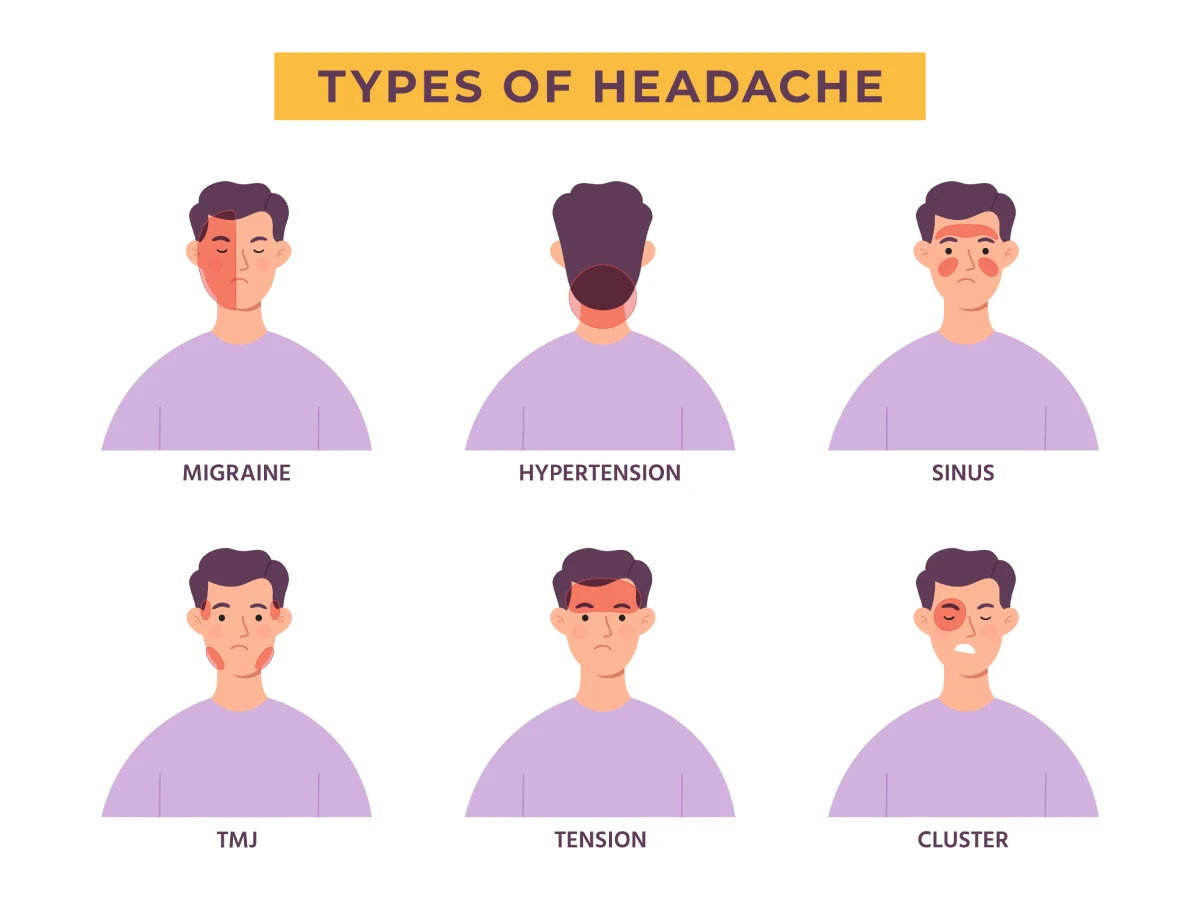Headaches in children
Find a neuro specialistLike adults, children can occasionally get a basic headache where they feel some discomfort, but it doesn’t last long. But they can also experience more severe headaches, sometimes caused by another health condition.
If you have concerns about your child's headaches, your pediatrician can let you know when to consult a pediatric neurologist. Whether your child experiences occasional, intense headaches or frequent cases, we can provide pain relief options. Our neurologists have the experience to treat a range of headaches, including migraines.
What are the main causes of children’s headaches?
Most headaches in children are caused by sinus congestion from common illnesses such as a cold, the flu, an ear infection or a sinus infection. Other common causes of headaches are the everyday bumps and bruises of childhood.
While many types of headaches – known as secondary headaches – can develop because of conditions like sinus congestion, concussion, brain tumor or stroke, some types (primary headaches) occur on their own. Your child's doctor will help you determine what’s causing their pain.
What are common types of headaches?

There are more than 150 types of headaches. Here are some of the most common types.
There are more than 150 types of headaches. Some common types of children’s headaches include:
- Sinus headaches: Related to sinus congestion caused by allergies, a cold, the flu, ear infections or a sinus infection. They cause pain in the forehead or cheeks.
- COVID headaches: One of the first symptoms of COVID. These may feel like a tension headache or a migraine.
- Tension headaches: These range in severity and frequency with pressure felt across the head and neck. Stress and anxiety may contribute to tension headaches.
- Migraine headaches: Migraines cause pulsing, throbbing pain and can last for more than a day. They may prevent your child from doing much and can be caused by triggers like lack of sleep, certain foods and noises, or smells.
- Temporomandibular joint (TMJ) headaches: Caused by teeth grinding or misalignment of jaw joints, this type of headache starts in the jaw and spreads to the face.
- Headaches after injuries: These may occur after a head, neck or back injury.
- Cluster headaches: These intense headaches occur in clusters, sometimes multiple times a day over weeks. They often develop on one side of the head or behind one eye.
Headaches can happen occasionally or frequently. For example, some children get migraines once every few years, while others experience them several times a week.
Headache symptoms
Children may not always understand what they’re feeling or find the words to describe it. If your child is very young, you’ll need to identify what signs of pain they’re showing such as crying or holding their head. Some children start waking up with headaches, which can be very disturbing. Signs of head pain in children are different for each child.
The main symptom of a headache is pain in the head, face or neck. Sometimes the pain affects more than one area, and it may be severe enough to keep your child from normal activities.
Children who have headaches may also have other symptoms such as:
- Blurred vision
- Decreased pupil size and drooping eyelids
- Dizziness
- Fatigue
- Muscle aches
- Nausea, stomach pain and vomiting
- Sensitivity to light or sound
- Sinus congestion
When should I worry about my child's headaches?
Make sure to get medical care right away if your child experiences:
- Sudden or severe headache
- Headache with stiff neck, fever, shortness of breath, convulsions, confusion, loss of consciousness, or pain in the ears or eyes
- Headache after a head, neck or back injury
Headache prevention
If your child has triggers that contribute to headaches, you can help prevent future headaches by avoiding triggers such as foods, smells or activities.
When your child participates in sports or other activities, it’s important to follow appropriate sports safety guidelines to help protect them from injuries that may contribute to headaches. You can also learn more about injury prevention in different situations.
Diagnosing headaches
Specialists from our neurology program will ask you questions about your child’s symptoms, medical history and overall health. For mild cases, we may ask you or your child to keep a diary of what symptoms they experience and when. In other cases, we may recommend diagnostic testing such as blood tests or imaging to make sure their brain is healthy.
Learn more about what to expect during your child’s neurological examination and read our FAQ about pain management in children.
Pediatric treatment for migraines and other headaches
Our goal in headache treatment is not only to provide relief from your child’s pain and other symptoms but also to prevent future episodes. For secondary headaches, we focus on treating the underlying health condition. For primary headaches, our approach depends on the type of headaches your child experiences.
Recommended treatments may include:
- Home-based care, such as lying down in a quiet room or taking a warm bath
- Lifestyle adjustments, including getting exercise, sleeping enough, eating well and drinking enough water
- Relaxation therapy, including yoga, massage or acupuncture
- Prescription or over-the-counter medications
- Biofeedback, which consists of placing sensors on your child’s body to show where there is tension and then teaching your child how to relax areas that hurt
If imaging shows a growth in your child’s skull, we may recommend a biopsy to diagnose the cause of the tumor. Surgery may be necessary for some brain tumors.
Rarely, surgery may be recommended for migraines or TMJ headaches that don’t respond to more conservative treatments.
Get Care
Kid-focused. Close to home. We’re here for your child in person and online.





